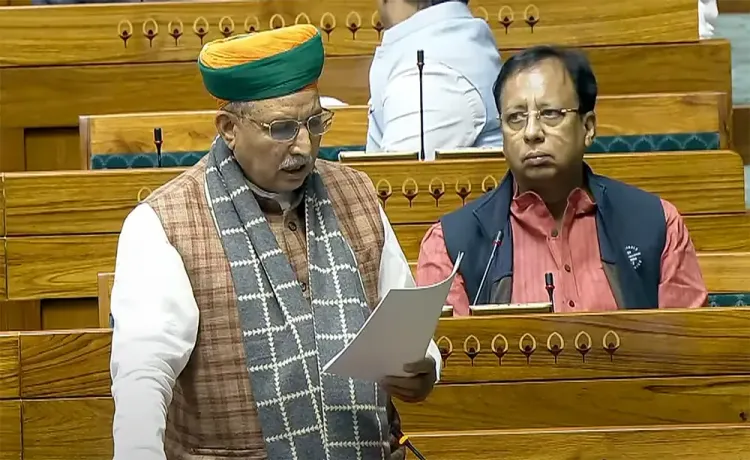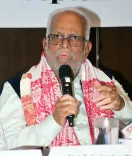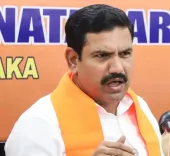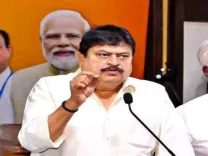Union Minister Meghwal to Present ‘One Nation, One Election’ Bill in Lok Sabha on Monday

New Delhi, Dec 14 (NationPress) Just four days following the Union Cabinet's endorsement, the Bills designed to facilitate simultaneous elections for both the Lok Sabha and state as well as Union Territory assemblies will be introduced in the Lower House on Monday. Union Minister for Law and Justice, Arjun Ram Meghwal, will be responsible for presenting these Bills.
Approved by the Union Cabinet, which is led by Prime Minister Narendra Modi, the ‘One Nation, One Election’ reform was confirmed on Thursday. Meghwal is set to introduce two significant Bills in the Lok Sabha: the Constitution (129th Amendment) Bill and the Union Territories Laws (Amendment) Bill.
The Central Government asserts that this legislation will not only streamline the electoral process but also enhance efficiency and diminish the financial and administrative burden associated with conducting elections at different times.
The High-Level Committee on Simultaneous Elections, which was chaired by former President Ram Nath Kovind, recommended that simultaneous elections for the Lok Sabha and state Assemblies be conducted, followed by synchronized local body elections within a 100-day timeframe.
Nonetheless, critics of this initiative have pointed out that synchronizing elections may introduce both logistical and constitutional issues.
Political parties such as the AAP, Congress, Samajwadi Party, and Trinamool Congress have expressed apprehensions regarding the implications of simultaneous elections on regional autonomy and fairness.
“This is a contentious matter. Our system is federal, making it challenging to implement the 'One Nation, One Election' framework. The Opposition has not been consulted on this issue. It is essential to involve all stakeholders in such a significant decision,” a leader from Congress stated to IANS.
Opposition figures have raised concerns about the complications that could arise from dissolving Assemblies prematurely or situations where either a state or the Union government fails to complete its term.
On the other hand, supporters of the Bill contend that it will initiate a new era of stability and continuity in governance, as administrations will no longer be caught in a continuous cycle of elections.
NDA allies, including JD-U and LJP, have strongly endorsed the Bills, emphasizing their potential to lower costs and promote policy continuity.
The government has clarified that the two proposed legislations allow for “mid-term” elections for the Parliament or state Assembly in the event of a government collapse, but this will only pertain to the “unexpired” portion of the five-year fixed term.







